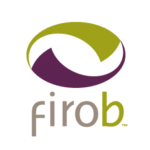Individual Assessments
CPI 260®
 The California Psychological Inventory (CPI 260®) is a leadership development and selection tool for today’s organizations. The CPI 260® assessment contains 260 carefully selected items that are used to measure three vector scales (interpersonal approach, intrapersonal values, and level of satisfaction) and more than two dozen scales in five broad areas: dealing with others, self-management, motivations and thinking style, personal characteristics, and work-related characteristics.
The California Psychological Inventory (CPI 260®) is a leadership development and selection tool for today’s organizations. The CPI 260® assessment contains 260 carefully selected items that are used to measure three vector scales (interpersonal approach, intrapersonal values, and level of satisfaction) and more than two dozen scales in five broad areas: dealing with others, self-management, motivations and thinking style, personal characteristics, and work-related characteristics.Campbell Leadership Descriptor
Change Style Indicator®
 This assessment is designed to measure your preferred style in approaching and dealing with situations involving change. The instrument provides insights on personal preference for managing change, and context for how others may perceive and respond to their preferred style preference.
This assessment is designed to measure your preferred style in approaching and dealing with situations involving change. The instrument provides insights on personal preference for managing change, and context for how others may perceive and respond to their preferred style preference.Conflict Dynamics Profile® (CDP-I)
Decision Style Profile®
 A decision making tool leads to greater awareness of how to choose the most effective and appropriate decision-making style for a given situation. The Decision Style Profile® poses ten typical, real-world business situations that require decisions. A personalized report compares participant choices to the most appropriate style choices, backed by research of over 20,000 executives and managers. The Decision Style Profile evaluates the appropriateness with which respondents include others in the decision-making process and the extent to which respondents consider five critical Decision Factors in their decision processes.
A decision making tool leads to greater awareness of how to choose the most effective and appropriate decision-making style for a given situation. The Decision Style Profile® poses ten typical, real-world business situations that require decisions. A personalized report compares participant choices to the most appropriate style choices, backed by research of over 20,000 executives and managers. The Decision Style Profile evaluates the appropriateness with which respondents include others in the decision-making process and the extent to which respondents consider five critical Decision Factors in their decision processes.FIRO-B®
 The Fundamental Interpersonal Relations Orientation-Behavior™ (FIRO-B®) assessment helps people to understand their interpersonal needs, and how those needs influence their communication style and behavior with others at work or in their personal life.Easy to administer and complete, the FIRO-B assessment is ideal for one-on-one coaching, team-building initiatives, communication workshops and leadership development programs.
The Fundamental Interpersonal Relations Orientation-Behavior™ (FIRO-B®) assessment helps people to understand their interpersonal needs, and how those needs influence their communication style and behavior with others at work or in their personal life.Easy to administer and complete, the FIRO-B assessment is ideal for one-on-one coaching, team-building initiatives, communication workshops and leadership development programs.FIRO Element B™
 It is based on the expanded FIRO Theory, a simple, practical, and comprehensive model for understanding interpersonal relations and group functioning in organizations. Element B is an assessment tool for measuring human behavior in the areas of Inclusion, Control and Openness. This powerful self-awareness instrument helps you understand others’ behavior as well. A better understanding of what drives behavior leads to improved relationships, less conflict and greater self awareness.
It is based on the expanded FIRO Theory, a simple, practical, and comprehensive model for understanding interpersonal relations and group functioning in organizations. Element B is an assessment tool for measuring human behavior in the areas of Inclusion, Control and Openness. This powerful self-awareness instrument helps you understand others’ behavior as well. A better understanding of what drives behavior leads to improved relationships, less conflict and greater self awareness.Hogan Talent Assessments
 The core assessments measure normal personality characteristics, career derailment risks, core value drivers, cognitive style and decision-making ability. Data from the assessments may be helpful to HR / Senior management to understand the underlying sources or behavior, and make decisions regarding development and/or selection.
The core assessments measure normal personality characteristics, career derailment risks, core value drivers, cognitive style and decision-making ability. Data from the assessments may be helpful to HR / Senior management to understand the underlying sources or behavior, and make decisions regarding development and/or selection.
The Hogan Personality Inventory (HPI) is a psychometric evaluation of personality characteristics that describe how we relate to others when we are at our best.
The Hogan Development Survey (HDS) describes personality behaviors that can emerge during times of stress, and may disrupt work relationships, damage reputations, or derail chances of success.
The Motives, Values, Preferences Inventory (MVPI) describes personality from the inside – the core goals, values, drivers and interests that determine what we desire and strive to attain. By assessing values you can understand motivations for success, and which type of position, job and environment will be the most productive.
Influence Style Indicator®
 A leadership assessment designed to measure preferred influencing styles, and give insight into styles that may be used more effectively in rapidly changing environments. The Influence Style Indicator® explores five identified styles and helps participants recognize these styles in themselves and others to maximize their effectiveness.
A leadership assessment designed to measure preferred influencing styles, and give insight into styles that may be used more effectively in rapidly changing environments. The Influence Style Indicator® explores five identified styles and helps participants recognize these styles in themselves and others to maximize their effectiveness.Myers-Briggs Type Indicator® Assessment (MBTI®)
![]() For almost 75 years, the MBTI instrument is the best known and most trusted personality tool for understanding individual differences and uncovering new ways to work and interact with others. From developing more productive work teams, leadership and reducing workplace conflict, the MBTI can improve the quality and effectiveness for any organization.
For almost 75 years, the MBTI instrument is the best known and most trusted personality tool for understanding individual differences and uncovering new ways to work and interact with others. From developing more productive work teams, leadership and reducing workplace conflict, the MBTI can improve the quality and effectiveness for any organization.
Strength Deployment Inventory (SDI)
Thomas-Kilmann Conflict Mode Instrument (TKI)
 This instrument (TKI) is an instrument for understanding how different conflict-handling modes, or styles, affect interpersonal and group dynamics. The TKI tool offers a pragmatic, situational approach to select the most appropriate style for conflict resolution.
This instrument (TKI) is an instrument for understanding how different conflict-handling modes, or styles, affect interpersonal and group dynamics. The TKI tool offers a pragmatic, situational approach to select the most appropriate style for conflict resolution.
Contact Us Now
